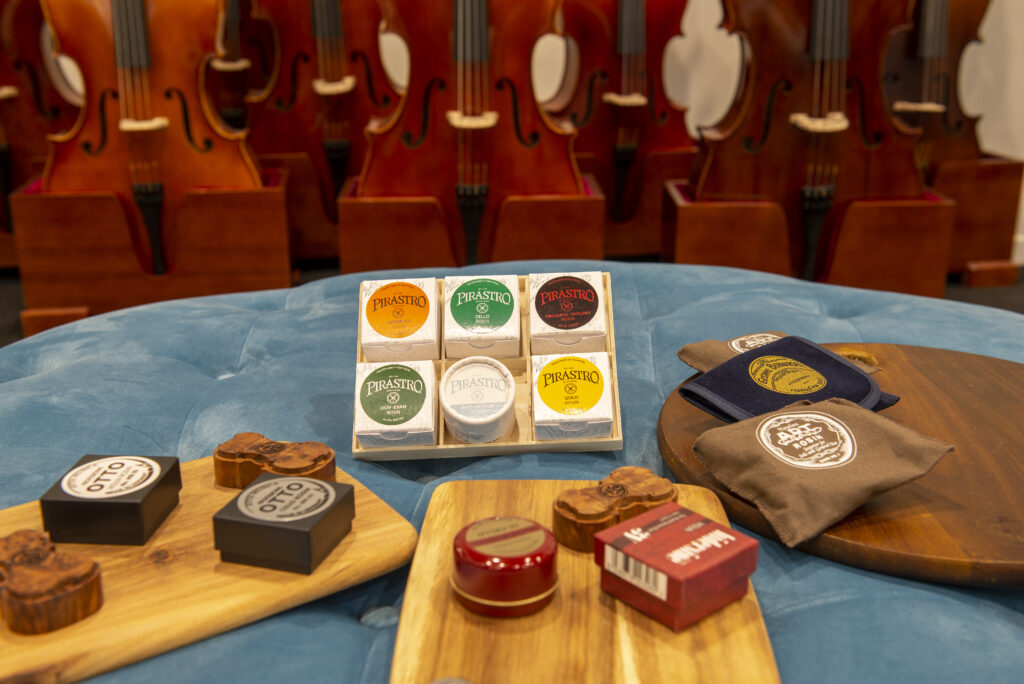
Why Do I Need Rosin?
What IS rosin? What does it do?
Solid in form, rosin is essential to creating sound with your instrument. Most of the rosin comes from a substance from trees, but is specially heated until it is ready for instrumental use. The rosin creates friction with the bow, gripping the strings. Without it, the bow will glide across the strings almost silently! No, your bow is not faulty. Likely, you forgot to put rosin on your bow recently!
Rosin is applied directly to the bow, not the instrument. Every so often, you will need to reapply to avoid unnecessary scratchy noises. It can be easy to put too much or too little rosin on the bow, which directly affects the bow grip on the strings. Half a dozen full bow strokes on the rosin should be enough for a few hours worth of playing. Your teacher can help guide you on how to apply it.
What new players often miss is different rosin will feel and play very differently. A darker rosin may have more grip than a smoother, lighter rosin. Some rosin is closer to $20, while others are closer to $60. In time, you will grow to notice the difference!
How long will the rosin last?
Rosin can last a few years – if looked after! It is very fragile however. When dropped it can easily shatter like glass. We suggest you do not touch it as the natural oils from your hand can affect it. Instead, most rosins come with a cloth or container to hold when applying to the bow hair.
Do I leave the rosin under my bridge?
Often lower quality rosins leave a lot of excess white powder on the instrument. A special microfibre cleaning cloth is used to wipe away excess rosin. If you have a lot of rosin building up on the strings & body of the violin, you may have put too much rosin on the bow, or may have not cleaned your instrument in a while! Just remember, avoid touching the rosin and bow hair with your fingers.
Plenty of Options:
- Gustave Bernardel is a fantastic option for students. For a proportionately low cost, this gives a clear, consistent sound. If a student is moving up in size & upgrading to Bernardel rosin, they should notice the difference between the sound & string contact when using Bernardel compared to other beginner rosins.
- Hidersine and Nyman both have a range of rosins for all string instruments. For cellos, these brands are quite common for beginner students. The attached cloth of 3C makes it easy to handle & apply for even the younger beginners.
- For more advancing players, the French P. Guillaume rosin is incredible. A perfect combination for a wide range of strings and instruments, this is absolutely one worth trying!
- Why not try Leatherwood Bespoke rosin? Made right here in Australia and with a range of choices, you will not be disappointed by these premium specialist rosins.
Theses are just a few of the popular rosins we have available. Come by and see for yourself rosin you might use next!
Happy Playing!
